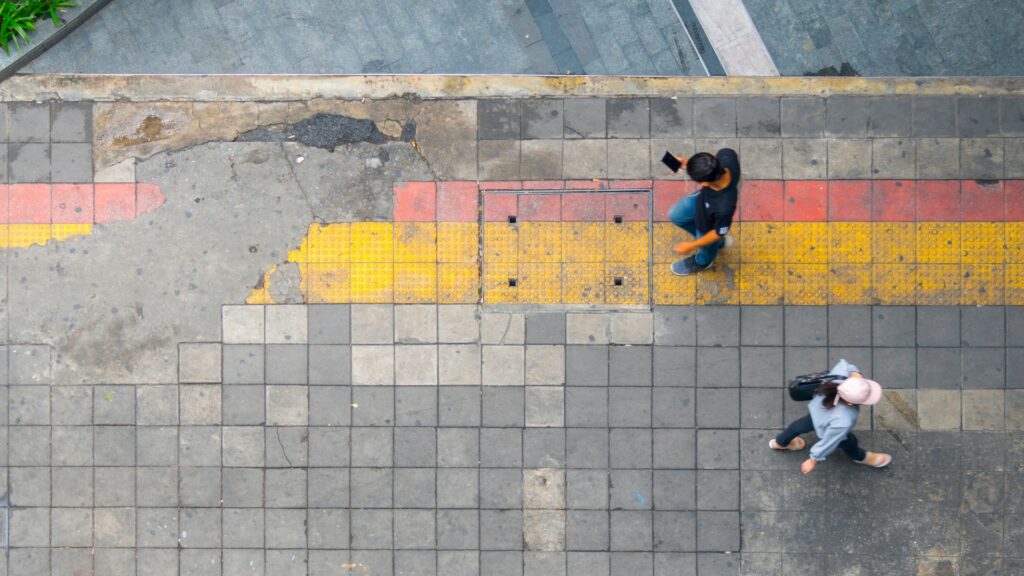Ethics of death during the pandemic
Ethics of death during the pandemic
Death-related practices such as funerals have changed a lot during the pandemic. But what is considered ‘ethical’ in terms of death?
By April 2022, more than 6.2 million people died from COVID-related causes around the world.[1] The pandemic has affected death-related practices too as, for example, hospitals have been filled with the deceased and in some countries, the situation has even been unbearable. A good example of this is Ecuador, where corpses of the deceased wrapped in plastic were lying on the streets for many days in the spring of 2020.[2] In New York,[3] Mexico,[4] and Brazil,[5] hospital morgues, funeral homes, cemeteries, and crematories exceeded their capacity and there was no time to bury or cremate the deceased fast enough.
Even in Finland, where the death rate was considerably lower, hospital morgues filled up at the beginning of 2022. Deceased wrapped in sheets or bags had to be put side by side on the floor or moved into trailers outside hospitals for temporary storage.[6] In Finland, however, the overflow of the deceased was not due to the pandemic per se, but partly caused by the fact that even more people were postponing funerals because of the COVID-19 restrictions.[7] [8]
Repressed emotions in funerals
During the COVID-19 pandemic, restrictions affected funerals in many countries. Restrictions on gatherings and recommendations on social distance and the use of face masks changed a lot of what was previously considered ‘normal’ in funerals and memorial services.[9] A study of British media articles on the theme of ‘saying goodbye’ during the pandemic revealed that practices related to ‘good death’ and ‘good grief’ were seen to be disrupted by the pandemic, as people were not able to go to hospitals to see their dying relatives.[10] In Finland, a study on emotions about COVID-19 restrictions in funerals addressed that many people felt social distancing, i.e., the absence of hugging and touching, especially oppressive and most relatives did not want to participate in funerals remotely.[11] In some cases, however, new practices were not necessarily experienced negatively. Some people found that face masks were useful when hiding their tears, and some felt that funerals were more intimate when only the closest family were present.[12]
Ethical death?
Alongside the changes brought by the pandemic, the culture of death has been changing. For instance, in Finland, more and more people are not members of the Church anymore. Due to this, questions have been raised as to whether the Church should have a ‘monopoly’ over funerals and burials.[13] [14]
Another global issue in death-related practices is the disposal of the body of the deceased. More and more people wish to be buried in an ‘environmentally friendly’ way, which would require new habits in terms of cremation and burial.[15] A novel example of this is the late Nobel Peace Prize-winning Anglican archbishop and anti-Apartheid campaigner Desmond Tutu, who was aquamationed in January 2022 in South Africa. In aquamation, or ‘flameless cremation’, his body was immersed for a few hours in a mixture of water and a strong alkali in a pressurized metal cylinder that was heated up to around 150 degrees centigrade, causing the breakdown of the organic materials. The ashes were then placed in an urn which was buried.[16]
Aquamation is one of the new, ecological ways of disposing of a corpse. However, it is not yet allowed in many countries. Even more environmentally friendly disposal of the corpse would be composting, where the body is wrapped in decomposing cloth sprinkled with dead leaves, litter, and sawdust. The body is then sealed in a composter with favourable conditions for bacteria and microbes that break down the body in about a month. The composting method has been allowed in some US states since 2019.
The third, and the most environmentally friendly, method would be freeze-drying. It is a method developed in Sweden but not yet allowed in any country. In freeze-drying, the body is frozen to dust by immersing it in −200-degree nitrogen. Both aquamation and composting have already faced opposition in the Catholic Church in the US, as they are not seen as valuable and respectful treatments of the deceased.[17]
COVID-19 pandemic and the ethics of death
During the pandemic, death-related practices changed worldwide. This caused debates on dignity: what is seen as respectful treatment of the deceased, and how should grieving relatives be treated with respect under the COVID restrictions? Overall, the pandemic showed the importance of death-related traditions such as coming together, sharing grief, and performing rituals. At the beginning of 2022, new ethical questions received attention as Archbishop Desmond Tutu was aquamationed, increasing general knowledge on ‘green death’. It seems that in the future, death-related practices are in transition. However, the ethical debate is not declining, rather on the contrary: in the midst of change, it is only increasing.
Our team of analysts conducts research on topics relating to religion and society. Find out their relationships on the EARS Dashboard.
Sources
[1] Koronatilanne Suomessa ja ympäri maailmaa
[2] Koronan runtelemassa Ecuadorissa lojuu ruumiita kaduilla – Tämä ei tule loppumaan pian, arvioi suomalainen kriisityöntekijä
[3] ‘We Ran Out of Space’: Bodies Pile Up as N.Y. Struggles to Bury Its Dead
[4] Coronavirus: Morgues and storage rooms are full of bodies. The true death toll in Mexico City is staggering
[5] Corpse lies on the street in Rio for more than 30 hours while kids play football yards away as Brazil becomes South America’s coronavirus epicentre with more than 20,000 deaths
[6] Uudenmaan ja Hämeen ruumishuoneet täynnä, vainajia säilytetty jopa lattioilla – tässä synkät syyt
[7] Ibid.
[8] Vainajien kylmäsäilytystilat sairaaloissa täyttyvät, koska monet lykkäävät hautajaisten järjestämistä
[9] Hautajaisten tärkeys korostuu korona-aikana
[10] Selman, L. E, Ryann, S., & Borgstrom, E. (2021). Saying goodbye during the Covid-19 pandemic: A document analysis of online newspapers with implications for end-of-life care. Palliative Medicine, 35(7), 1277–1287. https://doi. org/10.1177/02692163211017023.
[11] Vähäkangas, A. (2021). Tunteiden vuoristorataa korona-ajan hautajaisissa. Diakonian tutkimus, (2/2021), 35-54. https://doi.org/10.37448/dt.111091.
[12] Ibid.
[13] Kuolemantutkijan viesti tiivistää hyvän elämän – surulliset faktat suomalaisista hautajaisista
[15] Vesituhkaus, kompostointi ja pakastekuivaus ovat ympäristöystävällisempiä hautausmenetelmiä, mutta kovin nopeasti ne eivät ole tulossa käyttöön Suomessa
[16] Explained: What is aquamation, the green alternative to cremation chosen by Desmond Tutu?
[17] Vesituhkaus, kompostointi ja pakastekuivaus ovat ympäristöystävällisempiä hautausmenetelmiä, mutta kovin nopeasti ne eivät ole tulossa käyttöön Suomessa






